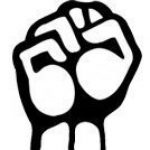Religion is fast replacing other ideologies such as Marxism-Leninism and anti-colonialism as determining social and political relations in our postmodern world. One result of the post September 11 world has been the demonization of Islam and the ‘politics of fear’ around the discourse of Islamic fundamentalism. This is despite the fact that fundamentalism, that potent ‘f word’, is originally Protestant, not Muslim, put forward in California in 1910 in a pamphlet titled The Fundamentals: A Testimony of Truth, which was circulated in 3 million copies, aiming to stop the erosion of what they saw as the ‘fundamental’ beliefs of Protestantism.
I do not need to re rehearse here the consequences of discourses such as ‘the clash of civilizations’ and the racial profiling of Muslims in the wake of 9/11 and the attacks in Madrid and London, which have resulted in what has been named the war on/of terror, waged mostly against Muslims.
One interesting consequence of this demonization has been the Swiss referendum put forward last November by the Swiss People’s Party aiming to ban the construction of minarets in Switzerland.
There are 400,000 Muslims in Switzerland (a small minority in a population of 6.4m of whom 1.96m have ‘immigrant background’), and only four minarets. Minarets, therefore, are not a huge problem, yet, according to the SVP, they are ‘a sign of Islamisation’. More than 57.5% of Swiss voters in 22 out of 26 cantons – or provinces – voted in favour of the ban, which was condemned by most world leaders from the Pope to Muslim leaders, yet has remained surprisingly undiscussed. There are unofficial Muslim prayer rooms in Switerland, and planning applications for new minarets are almost always refused. However, supporters of a ban claimed that allowing minarets would represent the growth of an ideology and a legal system – Sharia law – which are incompatible with Swiss democracy.
In the face of the success of the minaret ban, it is startling to think of the other Swiss referendum, put to voters in March, proposing to adopt the rights for animals to be legally represented. The proposal is based on an existing system in Zurich, according to which creatures such as goldfish and canaries, pigs, budgies and other animals should have legally enshrined rights including the right to be regularly exercised and cared for. This proposal was rejected by nearly 80 per cent, but the implications are interesting.
On the one hand, Switzerland has voted to outlaw the right of its Muslim citizens and residents to exercise their religious rights by praying and congregating in a publicly sited mosque, complete with a minaret. On the other, the Swiss seriously considered extending legal rights to animals – symbolically placing animals above people of the Muslim faith.
According to Maynooth media scholar Gavan Titley, the minaret ban – which means Muslims in Switzerland have to continue to pray in private facilities and thus keep their religion in the private domain – is part of a perceived ‘crisis of European multiculturalism’ which is accompanied by an ‘unapologetic demand for disintegrated migrants and Muslim populations to display loyalty, adopt ‘our’ national/liberal/universal values, and prove the legitimacy of their presence and belonging’.
